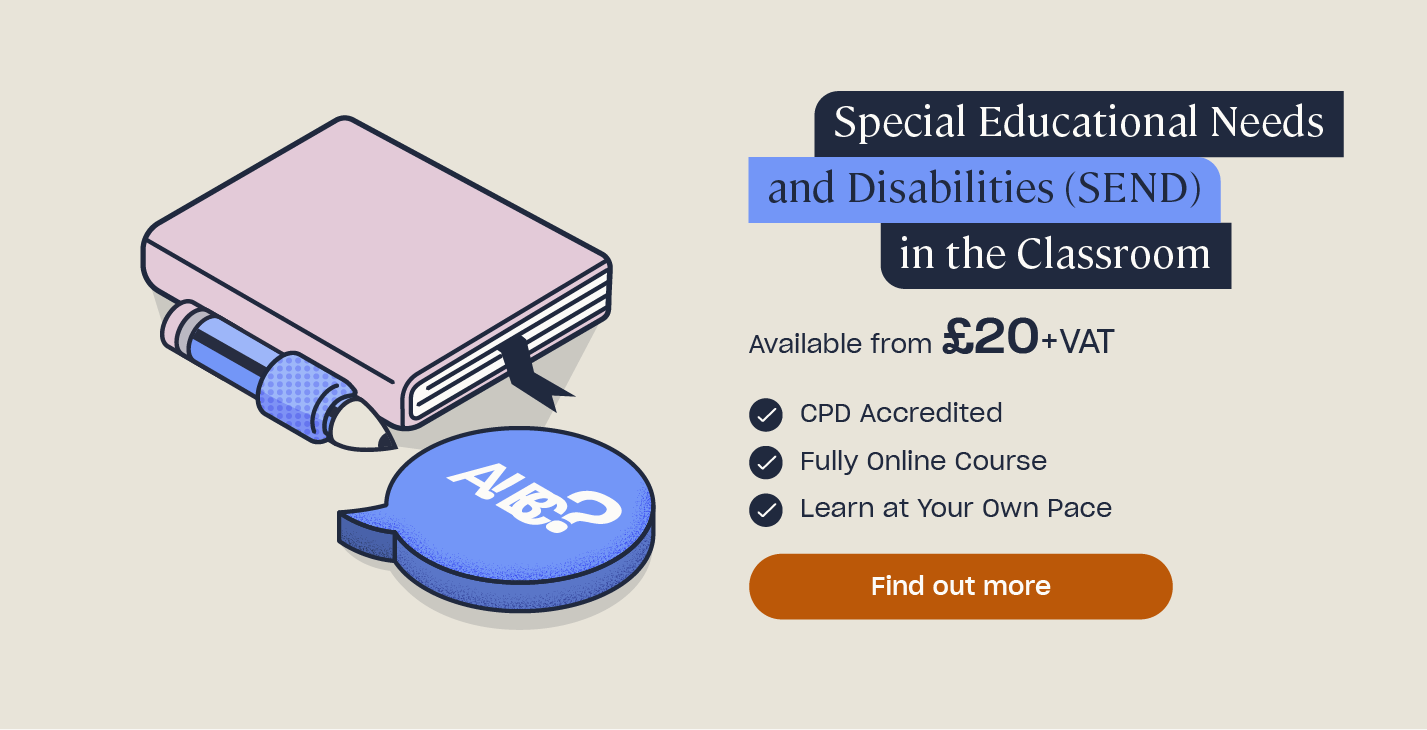What is the Local Offer?
The SEND Local Offer was created to help improve the lives of children with Special Educational Needs and/or Disabilities (SEND), as well as their families and those who care for them. The education sector plays an important role in the Offer, as it affects all children and young people from birth to 25 years old.
In this article, we will explain what the Local Offer is and how it benefits families, as well as looking at how schools can contribute to it. We will also provide a couple of examples of local offers in the Bradford and Wakefield areas.

The SEND Local Offer
The Local Offer is an information directory where individuals with SEND aged 0-25, as well as their parents or carers, can go to find out what support or provision they can expect to be available in their local area.
It covers a range of local agencies, including education, health, and social care services – such as childcare, independent schools or colleges, care placements, apprenticeships, transport arrangements between home and education settings, specialist teachers, therapy services, and other specialist support. It should also include relevant regional and national specialist provision, such as provision for children and young people with rare and more complex SEND.
The Offer should detail support for both those with Education, Health, and Care (EHC) plans and those without. It must include arrangements for:
- Identifying and assessing individuals’ SEND, including in the early years.
- Requesting an EHC assessment.
- Consulting parents.
- Securing services, provision, and equipment required.
- Funding and allocation of budgets, including top-up high-needs funding.
- Supporting transitions between phases of education, plus preparations for adulthood and independent living.
- Appealing decisions, making complaints, and resolving disagreements with regards to provision.
Under the Children and Families Act 2014, each Local Authority has a legal responsibility to publish their particular Local Offer. It needs to be published online, as well as in an alternative format for those without internet access.

Purposes of the Local Offer
The two key purposes of the Local Offer are:
- To provide clear, detailed, accessible, and up-to-date information about the provision available and how it can be accessed (including eligibility criteria). It must be easy to understand and well-signposted.
- To respond to local needs and see where gaps in the provision are by directly involving children and young people with SEND and their parents or carers – in addition to service providers – in its development and review. In other words, the Local Authority must ensure that comments can be made about the Local Offer, and they must take these comments into account.
You can look at Chapter 4 of the 2015 SEND Code of Practice for more information. Note that the Local Offer is not legally binding – there is no guarantee that a service mentioned in it will be available.
Want to Learn More?
Our SEND in the Classroom Course discusses best practice for supporting children in each of the four areas of need, and what Universal Provision (including high-quality teaching) should look like.
What Are the Benefits for Families of a Local Offer?
The Local Offer has many benefits for the families of children with SEND. Before it was created, families experienced difficulties in accessing information about provision, as well as the provision itself. As a result, many parents or carers felt they had no choice but to give up work to care for their children (Working Families, 2015), causing them to experience financial challenges. By setting out the nearest and most suitable services available, the Local Offer aims to reduce problems in this area.
In addition, by signposting families to high-quality provision, the Local Offer attempts to ensure that all children with SEND can have the best possible support, leading to the best possible outcomes – it has been shown that there is a link between the quality of provision and the outcomes of the child.
Because the development and review of the Offer involves those with SEND and their parents or carers, it makes provision in a local area more responsive to local needs and aspirations. Consequently, it should be fit for purpose, and adapt according to the feedback or concerns of those using the services within it.

How Can Schools Contribute to the Local Offer?
Schools and other education settings must contribute to the Local Offer (as well as using it themselves to find out which provision they can access, from area SENCos to sensory support services and specialist therapies, as part of the Graduated Approach).
Their contributions will involve ensuring that there are clear arrangements in place for requesting the services that they might require from the Local Authority. Education settings must also agree the range of local services with the Local Authority – for example, discussing what their setting will provide from the funding they receive for SEND, training provision, and transport arrangements.
SEN Information Report
Schools must publish this information in their own version of the ‘Local Offer’, in the form of the SEN information report, including details on:
- The kinds of SEN that are provided for in the school.
- Policies for identifying children and young people with SEN and assessing their needs, including the name and contact details of the SENCo.
- Arrangements for assessing and reviewing progress towards outcomes.
- Arrangements for consulting parents/carers of children with SEN and involving them in their child’s education, and for consulting young people with SEN themselves and involving them in their education review.
- Arrangements for supporting children and young people in moving between phases of education and in preparing for adulthood.
- The approach to teaching those with SEN, including how adaptations are made to the curriculum and learning environment, the expertise and training of staff in relation to SEN, and how specialist expertise is secured.
- An evaluation of the effectiveness of the provision made.
- How those with SEN are enabled to join in activities beside those without.
- Support for improving emotional and social development (e.g. extra pastoral support arrangements and measures to prevent bullying).
- How the school involves other sectors in supporting those with SEN, details of the school’s contribution to the Local Offer, and signposts to it.
- Arrangements for handling complaints about provision.
- Arrangements for supporting looked-after children with SEN.
The SEN information report should be available on the school’s website and updated at least annually. Again, it should be created in partnership with parents/carers and children (where possible), and must use clear, straightforward language.

Examples of Local Offers
It can be helpful to see an example of a Local Offer in order to gain a deeper understanding of what it is. Your Local Offer will depend on the area you live in – however, we will provide you with links to a few examples here (see Bradford’s Local Offer and Wakefield’s Local Offer), as well as explaining the general format.
Sections of a Local Offer tend to include:
- Special educational, health, and social care provision for children and young people with SEND – this should include online and blended learning.
- Details of how parents and young people can request an assessment for an EHC plan.
- Arrangements for identifying and assessing children and young people’s SEND – this should include arrangements for EHC needs assessments.
- Other educational provision – for example, sports or arts provision, or paired reading schemes.
- Post-16 education and training provision.
- Apprenticeships, traineeships, and supported internships.
- Information about provision to assist in preparing children and young people for adulthood.
- Arrangements for travel to and from schools, post-16 institutions, and early years providers.
- Support to help children and young people move between phases of education (for example, from early years to school, from primary to secondary).
- Sources of information, advice, and support in the Local Authority’s area relating to SEND, including information and advice provided under Section 32 of the Children and Families Act 2014, forums for parents and carers, and support groups.
- Childcare, including suitable provision for those with SEND.
- Leisure activities.
- Support available to young people in higher education, particularly the Disabled Students Allowance (DSA) and the process and timescales for making an application for DSA.
- Arrangements for resolving disagreements and for mediation, and details about making complaints.
- Parents’ and young people’s rights to appeal a decision of the Local Authority to the First-Tier Tribunal (SEND) in respect of SEND and provision.
- The Local Authority’s accessibility strategy (under Paragraph 1 Schedule 10 to the Equality Act 2010).
- Institutions approved under Section 41 of the Children and Families Act 2014.
This may vary across different Local Authorities.

The Local Offer was introduced to help improve the lives of children with SEND and their families. By providing them with access to information on the support and provision that they can expect in their area, it aims to improve children’s outcomes and reduce the struggles that families were previously experiencing.
Further Resources:
- ADHD Training
- Supporting Pupils With SEN in the Classroom
- SEND in the Classroom Course
- How to Support Individuals With Learning Disabilities
- What is SEND in Early Years?
- 7 Creative Classroom Exercises for Teaching SEN Children











